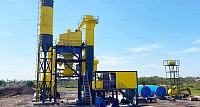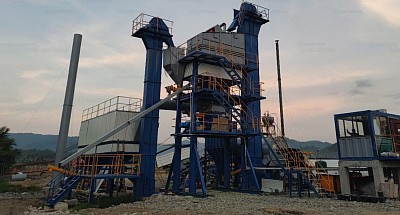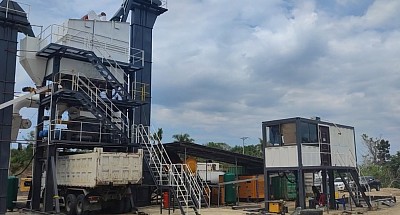Proportion of Energy Consumption Costs in Asphalt Mixing Plants Within Overall Project Budgets
Understanding Energy Consumption Costs
In asphalt mixing plants, energy consumption primarily arises from the operation of various machinery and equipment, including mixers, heaters, and conveyor systems. The asphalt hot mix plant, which plays a crucial role in producing quality asphalt, is one of the largest consumers of energy in the operation. Typically, energy costs can account for 20% to 30% of the total operational expenses in asphalt production, depending on the efficiency of the equipment and the type of fuel used.
For customers, this means that a considerable portion of their project budget will be dedicated to energy consumption. Recognizing this allocation is essential for effective financial planning. By understanding the specific energy costs associated with their chosen asphalt plant—whether a fixed, mobile, or mini asphalt mixing plant—customers can assess their overall expenditures more accurately.
Impact on Project Budgets
The impact of energy consumption on project budgets extends beyond initial costs. High energy consumption can lead to increased operational costs over the lifespan of the project. For instance, if an asphalt mixing plant operates inefficiently, it may require more fuel, resulting in higher expenses that affect the overall budget. This scenario is particularly relevant for projects involving extensive road paving, where energy costs can accumulate rapidly.
Moreover, as energy prices fluctuate, the budgeting process becomes even more critical. Customers must account for potential changes in energy costs when planning their projects. This foresight can help prevent budget overruns and ensure that projects are completed within financial constraints.
Strategies for Reducing Energy Costs
To mitigate the impact of energy consumption costs, customers can implement several strategies. One effective approach is to invest in modern, energy-efficient asphalt mixing plants that utilize advanced technologies to optimize fuel use. For example, some asphalt plants are designed to minimize energy consumption through improved insulation and more efficient heating systems.
Additionally, regular maintenance of equipment can significantly enhance energy efficiency. Ensuring that all components of the asphalt hot mix plant are functioning optimally will reduce unnecessary energy wastage. Training operators to employ best practices in energy management can also lead to substantial savings.
Conclusion
In conclusion, energy consumption costs play a vital role in the overall project budget for asphalt mixing plants, typically accounting for 20% to 30% of operational expenses. Understanding this proportion allows customers to make informed decisions regarding their projects, ultimately leading to better financial management. By prioritizing energy efficiency and implementing strategic measures to reduce consumption, customers can optimize their budgets and improve the overall economics of asphalt production. Embracing these practices not only enhances project viability but also contributes to more sustainable construction practices in the industry.



